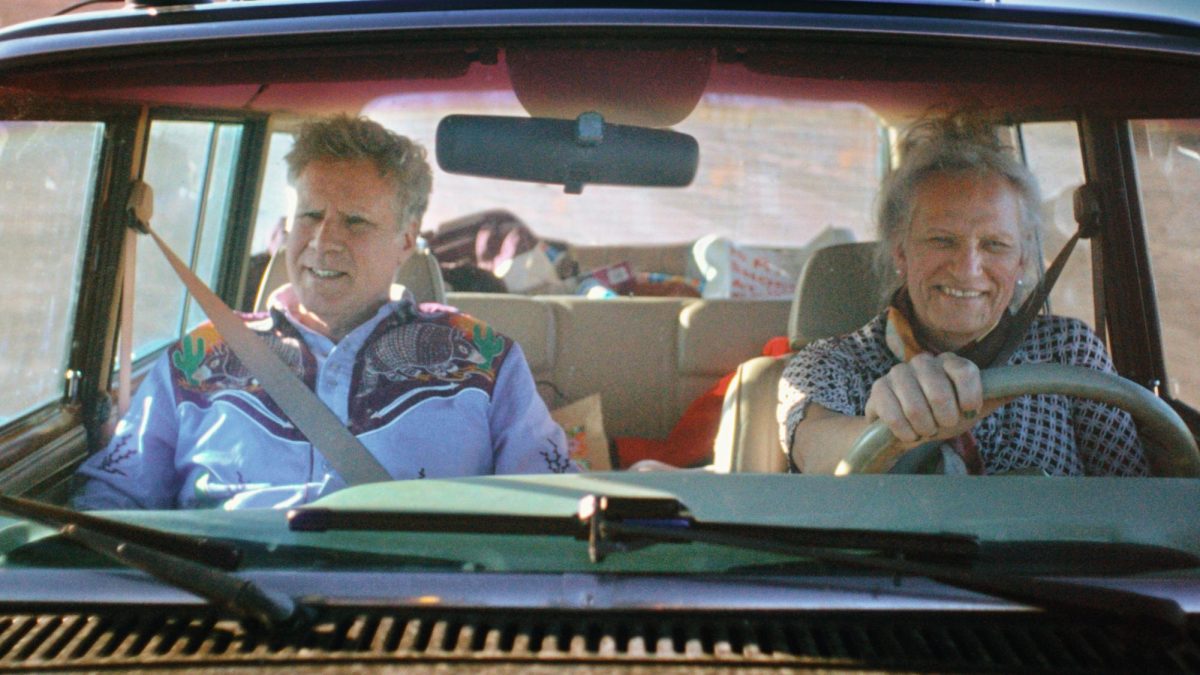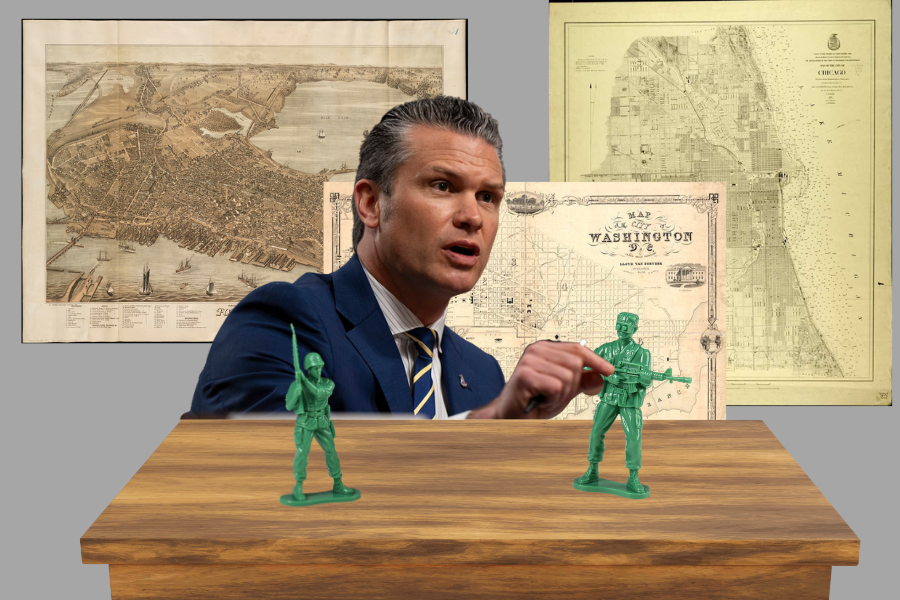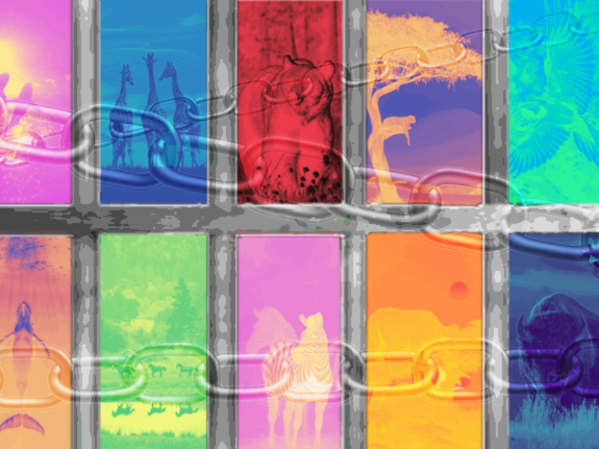LGBTQ+ identities are an increasingly political and isolating battle as more restrictive legislation continues to pass in conservative states. “Will and Harper,” a new Netflix documentary, follows actor Will Ferrell and writer Harper Steele on a 16day cross-country road trip as they navigate what it means for trans people to exist in different parts of the country and what their friendship looks like since Steele’s transition.
Ferrell and Steele first met in 1995 on “Saturday Night Live” and navigated the world of comedy together, often partnering on Ferrell’s most iconic roles. In 2021, Steele came out to family and friends as a trans woman and began her transition.
In this documentary, Steele shares her experience of oppressing her identity for most of her life and the freedom she felt once she started presenting as who she truly was.
Prior to Steele’s transition, she would go on cross-country road trips often. However, now she shares that she is worried about how she will be perceived in different parts of the country that have continued to pass restrictive laws for transgender people.
“I love this country but I don’t know if it loves me back right now,” Steele said in the documentary.
With Ferrell and Steele’s long-time friendship, the idea is that they could travel together and show people that you can have open and honest conversations about trans identities and address common questions or different dynamics that come up in relationships. They both had questions they wanted to ask the other person and decided that they would talk about it for an audience to be able to learn from as well.
Identity has been an issue that has been politicized for decades. Legislation continues to be passed throughout different states creating discrimination and barriers for queer people to have the support and healthcare they need.
Throughout history, different aspects of LGBTQ+ identities have been under attack. In the 1950s, national legislation made it illegal for homosexual people to work in civil service jobs, creating the Lavender Scare. Starting in 1969 with the Stonewall Riots, queer people began taking back their voices and rights and while progress was made there was still stigmatization around the topic, especially in the 1980s during the AIDS epidemic. It was not until 2015 that same-sex marriage was legal across all 50 states and now, transgender and queer people are not legally protected or safe in all places across the United States.
According to the Human Rights Campaign, 21 states have bans on transgender health care, seven states have anti-transgender bathroom bills or locker room bans and five states have sports bans for trans students.
It is also reported that this legislation goes beyond transgender individuals and there are laws discriminating against all LGBTQ+ people, especially kids in schools. Idaho, Kansas, Kentucky, Montana and Wyoming have forced student outing laws, Arizona, Arkansas, Kentucky, Montana, North Dakota, Tennessee and Utah have student pronoun refusal laws and Arkansas, Florida, Indiana, Iowa and Kentucky have “don’t say LGBTQ+” laws.
Many of these legislations exist in Southern and Midwest states.
All of these legislations make it nearly impossible for queer people to openly exist and this causes an increase in mental health crises, social stigmatization and limited safe spaces for LGBTQ+ people.
In “Will and Harper,” Steele shares that coming out and transitioning saved her life.
“Up until the moment I transitioned, I didn’t want to have a gun around me because it could be an impulsive thing,” Steele said in the documentary. She then goes on to say that once she started living openly as a woman, her life changed. “The moment I transitioned, all I wanted to do was live.”
Steele is not the only trans person who has experienced these mental health battles. On their road trip, Ferrell and Steele stop in Peoria, Illinois where they meet another trans woman, Dana Garber, who came out at age 55.
Garber said that she knew her whole life she was supposed to be a girl but because of the society she lived in, she suppressed these feelings and in turn, her mental health declined significantly and for a long time, she battled suicidal thoughts.
The Trevor Project reported that LGBTQ+ youth are more likely to consider suicide compared to their heterosexual peers. It reported that 84% of queer young people over the last 12 months wanted access to psychological or emotional counseling. Depending on their geographical location and racial background, some were more likely to access the care they wanted.
Many of the states Ferrell and Steele traveled through have anti-LGBTQ legislation which made safety a top concern for Steele.
One of the first places they stopped in was Indiana to go to a Pacers game.
Ferrell’s fame got them courtside seats and introductions to many other influential people there, including Eric Holcomb, the governor of Indiana. They took a photo together and Ferrel explained what he and Steele were doing. Afterward, they look up Holcomb’s stance on transgender people to learn that he has passed very restrictive laws banning gender-affirming healthcare and other anti-LGBTQ+ legislation in his state.
After the game, Ferrell and Steele discuss how they will now forever be in a photo with someone who does not support Steele’s existence and how they feel about it.
As they go through Texas, they see a sign for the “Big Texan” challenge, where you have one hour to eat a 72-ounce steak. Ferrell and Steele go to complete the challenge, but it quickly escalates into an uncomfortable situation when it becomes apparent they are on full public display. A sense of safety is no longer applicable, especially for Steele.
“I felt like my transness was on display and that made me feel not great,” Steele said reflecting on the night.
As they talked through what happened, Ferrell broke down and said, “I feel like I let you down in that moment.”
One of the most emotional scenes in the documentary is when Ferrell and Steele make it to California and they go to the town of Trona. They pull up to this abandoned house complete with boarded doors and graffiti. Steele owns this house; she bought it about six or seven years ago so she could have a place to “live as a woman.”
Steele said it was a way for her to get away from people and to live as her authentic self without the fears of society. As they look at the outside of the house Steele breaks down crying as she recalls the horrible feelings of oppression and hatred that are laced within the walls of this house.
“I hated myself so much,” she said. “I felt like a monster.”
As Ferrell and Steele walk through the house she explains that she would bring women’s clothes here and work in those clothes. At night, she would sit outside in the clothes that made her happy and she would live as a woman. But she was existing outside of the world.
Living like that, having your identity contained into one house —a house that no one even knew you had —was an extremely difficult thing for Steele to recall.
Now, she wants to give the house away. Because now, she lives her authentic life every day. She is Harper Steele on the outside as much as she was her whole life on the inside.
“I don’t want to be afraid of people anymore,” Steele said. “That’s just sad and terrible. I get to be in the world.”
The last scene of “Will and Harper” ends with the two friends setting up their chairs on the beach of California. As the sun sets, they realize they made it across the country and admit there is still so much more they want to ask each other.
Ferrell presents Steele with a gift to commemorate their trip: a pair of diamond earrings. The theme of beauty and what that looks like for Steele now was one of the main themes throughout this documentary.
Ferrell told Steele in this scene, “As obviously a memory of the trip but just, it’s okay to feel pretty and do nice, pretty things for yourself.”
“Will and Harper” is an important documentary for everybody to watch and to gain a deeper understanding of the trans experience. Everyone has a different story, and we all go through different things, but at the end of the day, we are all people and people deserve to be treated with respect.
The current climate of the United States is not designed for everyone’s security. LGBTQ+ people have restrictions over basic things like health care and respect. Ferrell and Steele take an important step to destigmatize the queer and trans experience in a comical, vulnerable and significant way.




















